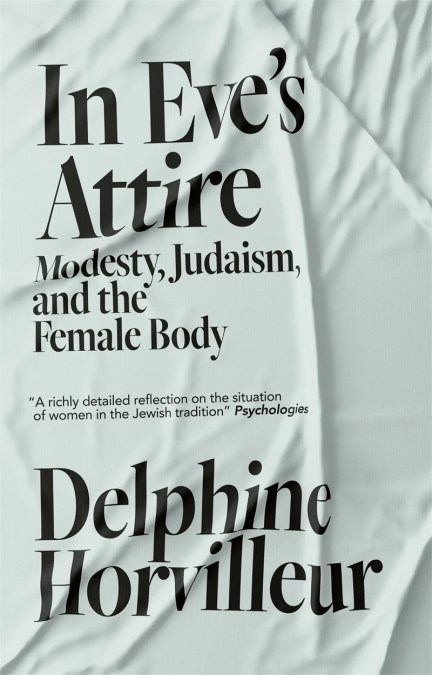In Eve’s Attire
On sale
3rd March 2022
Price: £14.99
Selected:
ebook / ISBN-13: 9781529404784
Does modernity trample on tradition, or can it in fact be a vehicle for the sacred?
How can one determine whether an interpretation is legitimate, anachronistic or corrupted?
Does sexual obsession have a textual origin, and is it woman’s destiny to be veiled?
In Eve’s Attire confronts these questions and more to suggest another interpretation of religious traditions surrounding the female body and the erotic.
As current fundamentalist religious discourse expresses a growing fixation on modesty, women are increasingly reduced to those parts of their bodies that arouse desire, effectively “genitalised” until the totality of their bodies becomes taboo. In resistance to such interpretations of religious text, which see even a woman’s voice as an erotic organ to be silenced, Rabbi Delphine Horvilleur looks not only at religious texts themselves, but also at their interpreters, as she unpicks readings that make the woman a temptress, and modesty the instrument of her oppression. She shows us how nakedness, as expressed by Adam, Eve or Noah, refers to a culture of desire and not a wish to suppress it and explores how the veil was originally intended: not to reject, but to approach the other.
Through her analysis of the meaning of modesty and nudity in Judaism, Delphine Horvilleur explores the societal and religious obsession with the female body and its representation and asks questions about how we can engage more critically with interpretations of sacred texts.
Translated from the French by Ruth Diver
How can one determine whether an interpretation is legitimate, anachronistic or corrupted?
Does sexual obsession have a textual origin, and is it woman’s destiny to be veiled?
In Eve’s Attire confronts these questions and more to suggest another interpretation of religious traditions surrounding the female body and the erotic.
As current fundamentalist religious discourse expresses a growing fixation on modesty, women are increasingly reduced to those parts of their bodies that arouse desire, effectively “genitalised” until the totality of their bodies becomes taboo. In resistance to such interpretations of religious text, which see even a woman’s voice as an erotic organ to be silenced, Rabbi Delphine Horvilleur looks not only at religious texts themselves, but also at their interpreters, as she unpicks readings that make the woman a temptress, and modesty the instrument of her oppression. She shows us how nakedness, as expressed by Adam, Eve or Noah, refers to a culture of desire and not a wish to suppress it and explores how the veil was originally intended: not to reject, but to approach the other.
Through her analysis of the meaning of modesty and nudity in Judaism, Delphine Horvilleur explores the societal and religious obsession with the female body and its representation and asks questions about how we can engage more critically with interpretations of sacred texts.
Translated from the French by Ruth Diver
Newsletter Signup
By clicking ‘Sign Up,’ I acknowledge that I have read and agree to Hachette Book Group’s Privacy Policy and Terms of Use
Reviews
A luminous essay
Courageous, subtle and often funny
A richly detailed reflection on the situation of women in the Jewish tradition
A brilliant deconstruction of fundamentalist religious discourse
Brilliant ... A deep dive to the heart of the great monotheistic religions

